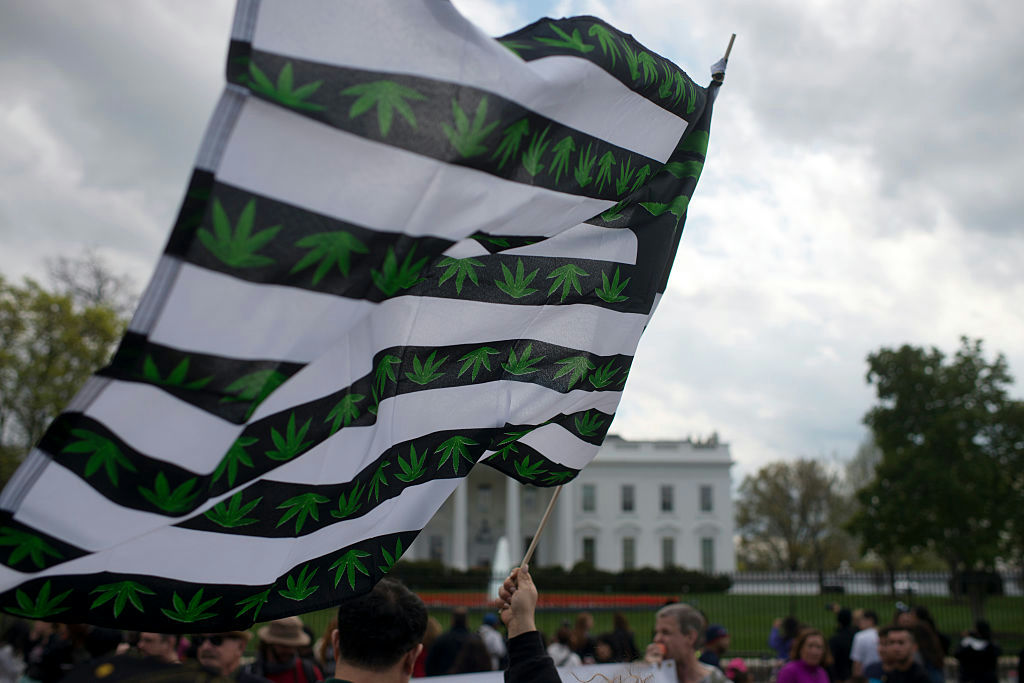Canadian pot investors are being banned from entering the U.S.
More than 30,000 people cross the U.S.-Canadian border in Blaine, Washington, every day. For most, it's a trouble-free experience but for some Canadian business people, that seems to be changing.
Sam Znaimer is a Vancouver, Canada-based venture capitalist who has been investing in everything from tech to telecommunications for more than 30 years. Recently, he put more than $100,000 into legal American cannabis companies. In May, when he attempted to drive across the border, he was flagged for a secondary inspection and questioned for four hours.
"To my shock and horror, I was told that I was deemed to be inadmissible to the United States because I was assisting and abetting in the illicit trafficking of drugs," Znaimer said. "They never asked whether I had consumed marijuana, the only thing that they're interested in is that I've been an investor in U.S.-based cannabis companies."
Marijuana in some form is legal in 30 states and Washington D.C., but it's still outlawed by the U.S. federal government.
"I was shocked. I couldn't believe that anyone as peripherally involved with these companies as an investor could possibly be deemed to be assisting and abetting. It is a huge regulatory overreach," Znaimer said.
American immigration attorney Len Saunders said he's seen at least a dozen cases like Znaimer's at the Blaine land crossing as well as airports in Vancouver and Edmonton over the past few months. In the prior 15 years that he's practiced law on the border, he'd never seen one.
"You're being barred because you're getting paid through drug money, even though it's marijuana," Saunders said. "It might as well be cocaine or heroin…These are not people who have criminal convictions, these are not people who are terrorists or a threat to the United States"
In June, Canada became only the second country in the world to legalize recreational marijuana nationwide. It's also home to one of the only securities exchanges on the planet where people can buy stock in American pot companies. Analysts estimate 44 percent of the $5.7 billion invested in legal cannabis around the world come to Canada.
Giadha Aguirre De Carcer analyzes cannabis industry data, and she fears that Canadian investors will be scared away from putting their money in the American market.
"Canada has matured as a market, with better regulation, faster and earlier," De Carcer said. "It could have a very damaging effect to legal cannabis businesses in the United States, and it could do so to the point of crippling the market."
As for what this does to relations between Canadian investors and the United States, Znamier said he believes it was intended to "provide a huge chill on business travel into the United States" and for him, "it's been hugely effective."
The U.S. Department of Customs and Border Protection didn't respond when asked if these actions are part of a new border enforcement policy. Instead, it notes that "marijuana remains federally prohibited in the United States," that it's "officers are thoroughly trained on admissibility factors" and that their determinations "are made on a case-by-case basis ...based on the facts and circumstances known to the officer at the time."
But that's little comfort to Sam Znamier. Although he may be able to get a costly and temporary waiver to his ban sometime in the future, for now, he's unable to cross the world's longest international border, possibly for the rest of his life.
The impact on Canadian businesspeople is dramatic, but Americans who travel overseas and return to the U.S. are not affected because by law American citizens cannot be stopped from returning home.






